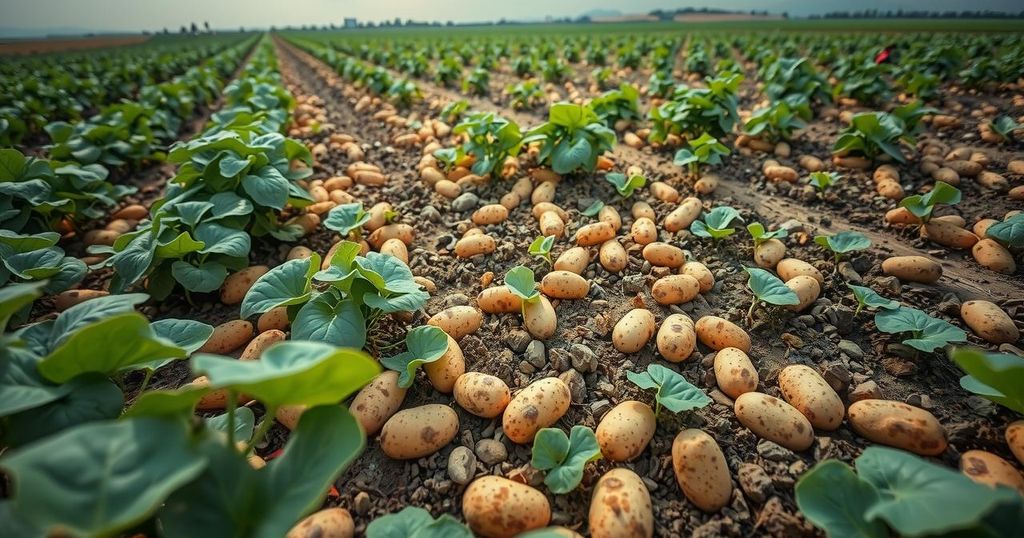Impact of Rising Temperatures on Potato Yields: A Call for Adaptation Strategies

Chinese research indicates that increased temperatures due to climate change can significantly reduce potato yields, with crops being smaller and less abundant. The study warns that farmers must adapt their practices promptly to ensure future food security as global temperatures are expected to rise.
To mitigate the effects of climate change on potato yields, a team of researchers in Beijing, led by molecular biologist Li Jieping, has conducted extensive studies under conditions mimicking projected elevated temperatures. The findings revealed that while potato growth may initially accelerate, significant reductions in yield were observed, with harvested potatoes weighing less than half the size of traditional varieties. Given that China is the largest global producer of potatoes, these insights raise concerns about long-term food security amid rising temperatures anticipated by the end of the century.
The research was carried out in a controlled chamber to simulate conditions 3 degrees Celsius warmer than the current norms in northern Hebei and Inner Mongolia. Over three months, the study focused on two prevalent potato varieties, revealing an unsettling trend: a ten-day growth acceleration accompanied by a yield decrease of more than fifty percent. Li Jieping, affiliated with the International Potato Center in Lima and conducting research in collaboration with the Chinese government, emphasized the pressing need for adaptive strategies.
The urgency of the research is underscored by projections from a United Nations report indicating a potential increase in global temperatures of 3.1 degrees Celsius by 2100. “I worry about what will happen in the future,” stated Jieping. “Farmers will harvest fewer potato tubers; it will influence food security.”
In light of these findings, it is essential for farmers to adapt their planting schedules—transitioning from summer to spring planting—or to relocate cultivation efforts to higher altitudes to mitigate the impact of increasing heat. Additionally, with heightened humidity complicating the situation, farmers in regions like Inner Mongolia face the necessity of harvesting potatoes swiftly before adverse weather strikes. This scenario has spurred a demand for potato varieties that yield better and possess greater resistance to diseases.
The growing concern regarding rising global temperatures and their impact on agriculture highlights the vulnerability of essential crops such as potatoes. As the world’s largest producer of potatoes, accounting for over 22 percent of global production, China faces significant risks to food security amidst climate change-driven conditions. Understanding how temperature rises influence growth and yield is crucial for developing adaptive agricultural strategies.
In conclusion, the research conducted by Li Jieping and his team sheds light on the complex relationship between climate change and agricultural productivity, particularly emphasizing the detrimental effects of rising temperatures on potato yield. Without timely adaptations, Chinese farmers may confront significant economic challenges and food security dilemmas. Proactive measures will be essential to safeguard future potato production against the rising climate threats.
Original Source: www.outlookbusiness.com






